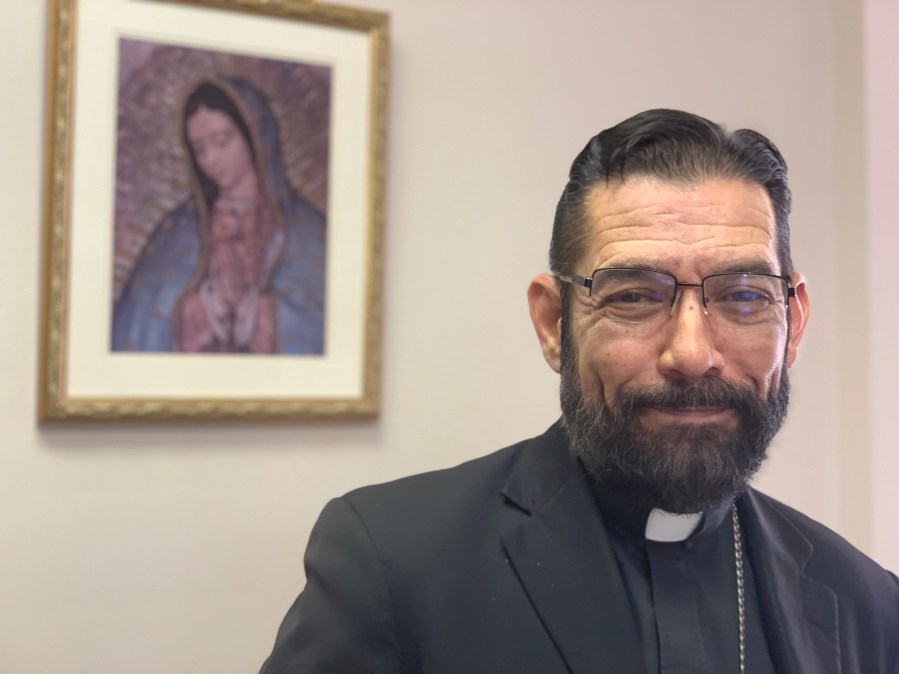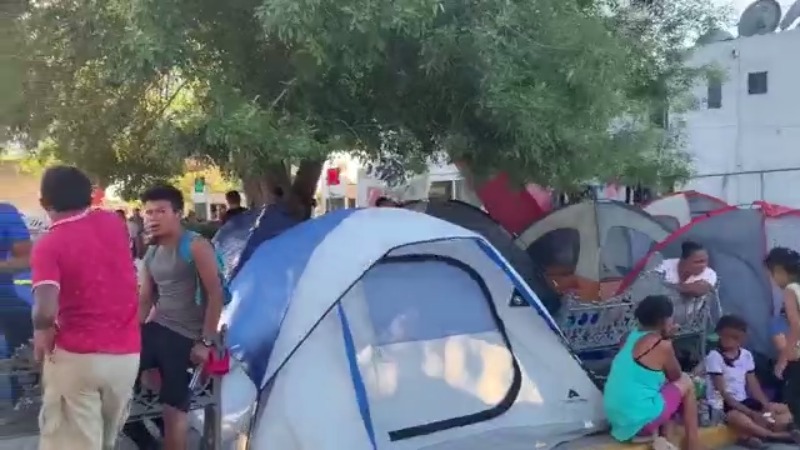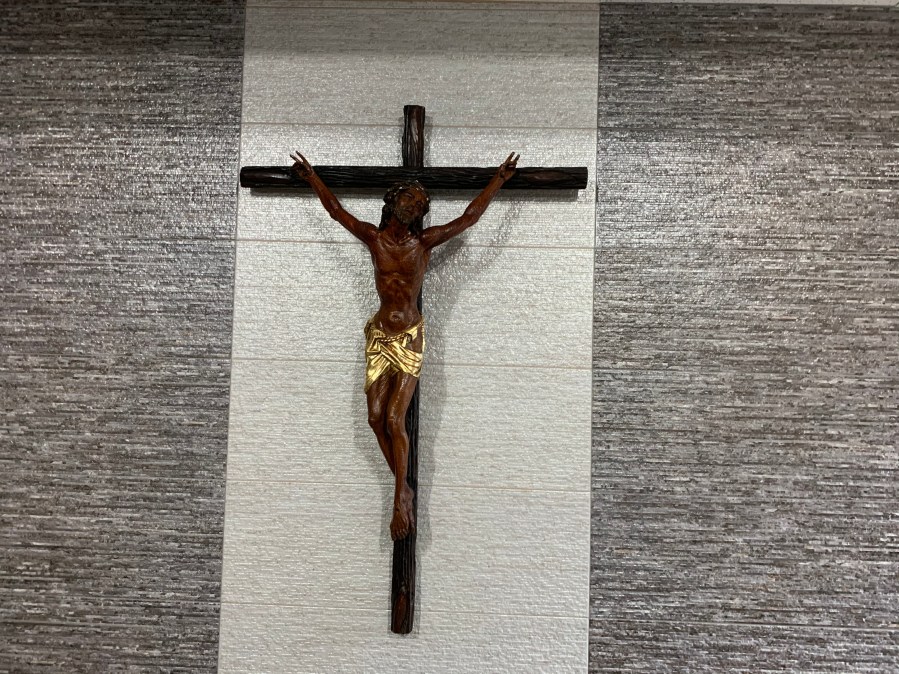BROWNSVILLE, Texas (Border Report) — Bishop Daniel Flores, who oversees the Catholic Diocese of Brownsville, for years has been an outspoken advocate for the humanitarian rights of asylum-seeking migrants.
Now, Flores has the potential to hold a national leadership position with the United States Conference of Catholic Bishops when it meets next week in Baltimore. Flores is on the ballot, along with nine other bishops, to be elected president or vice president of the organization for the next three years (Flores says it’s almost certain that the organization’s current vice president will be elected president, leaving the others to vie for the secondary spot.)
Such a platform would undoubtedly elevate Flores’ ability to discuss the plight of the immigrant, but in a 30-minute sit-down interview with Border Report on Thursday at his diocese chancery in Brownsville, he said there is already much interest in this topic and he doesn’t necessarily have to win office to convey this message.
Flores said that when the 240 U.S. bishops meet, they routinely ask him and the other border bishops about what is happening to asylum-seekers on the Southwest border and how U.S. immigration policies have changed.
Since the migrant surge began in 2014, several bishops and Conference leaders have come to South Texas, to visit humanitarian respite centers run by Catholic Charities of the Rio Grande Valley, as well as U.S. Border Patrol detention facilities.
“I frequently get asked about the border here in Brownsville, the bishops in Laredo and El Paso do, as well, because there are different realities affecting things all the way to California. You don’t necessarily need a national office to talk about these things and it has been on the (Conference’s) national agenda,” Flores said. “No doubt whoever is elected that will continue.”
Catholic bishops call for US immigration reforms
For decades, the Conference has called for immigration reform, and Flores said the issue remains a top priority, especially as they convene their annual four-day General Assembly beginning Monday in Maryland.
Reforms that the Conference of Bishops have called for include: Keeping families together; legally recognizing Dreamers (which the U.S. Supreme Court is set to hear a case about this month); a pathway for citizenship for migrants who have been here for many years; and most pressing for the bishops, laws that mandate humane treatment of those seeking asylum in the United States, Flores said.
“The U.S. bishops have been asking for a number of decades in terms of re-calibrating how we have written our laws to more adequately reflect the current reality on the ground,” he said.

Keeping up with the evolving U.S. immigration policies is difficult, Flores said, especially trying to explain the Migrant Protection Protocols (MPP) policy, commonly called the Remain in Mexico policy, to those who don’t live on the border.
Clarifying that this is purely his position and not that of the Conference, Flores added: “In my view, sometimes immigration rhetoric in the country is fairly distant from the reality on the ground.”
In my view sometimes immigration rhetoric in the country is fairly distant from the reality on the ground. “
Bishop Daniel Flores, Catholic Diocese of Brownsville
Since the MPP program began in South Texas in mid-July, the Catholic Charities of the Rio Grande Valley’s humanitarian respite centers are nearly empty. What used to be 1,000 asylum-seeking families passing through their facilities daily, has trickled down to barely a handful, Flores said.
Instead, nearly 2,000 homeless migrants await their asylum hearings in tents on the banks of the Rio Grande in Matamoros, Mexico, across the Gateway International Bridge, which is just two blocks from the diocese.

‘Nation of compassion’
Since 2014, when South Texas became the epicenter for migrants crossing the border, Flores has repeatedly said, “We can be a nation of laws and still be a nation of compassion.”
On Thursday, he reiterated the need for laws to be followed, but also for humans to be treated with dignity and for the safeguarding of vulnerable populations.
“The United States has the responsibility to vet those who come into the country and to make sure the laws of the country are respected, but the laws ought to look at the human reality,” Flores said. “It’s heartbreaking to hear there’s a breakdown in society in other countries that’s causing people to move.”
Flores said there needs to be a way to distinguish between the criminal element that’s causing immigrants to flee and the immigrants who are fleeing.
“Not all immigrants are the criminal element. The reality is the innocent immigrant is the one who is fleeing that reality. And right now the law does not have a way and we need to distinguish that,” he said.

The United States cannot do this alone, and he said Pope Francis is right in asking for worldwide global participation to right these wrongs.
Flores said his office works regularly with the Diocese of Matamoros, and volunteers cross daily from Brownsville to help the migrants. But he stressed the situation is “beyond tragic” and as the days get colder, these asylum-seekers are suffering and something needs to be done.
“That’s why the church has the responsibility to call on governments of all kind to address the humanitarian in a cooperative fashion because people deserve to be treated better than they’re being treated, no matter who they are and it really is beyond tragic,” Flores said. “There’s violence all over the world but the immigrant is a victim of violence in a particularly consistently brutal way. … We can’t pretend it’s not there.”
















